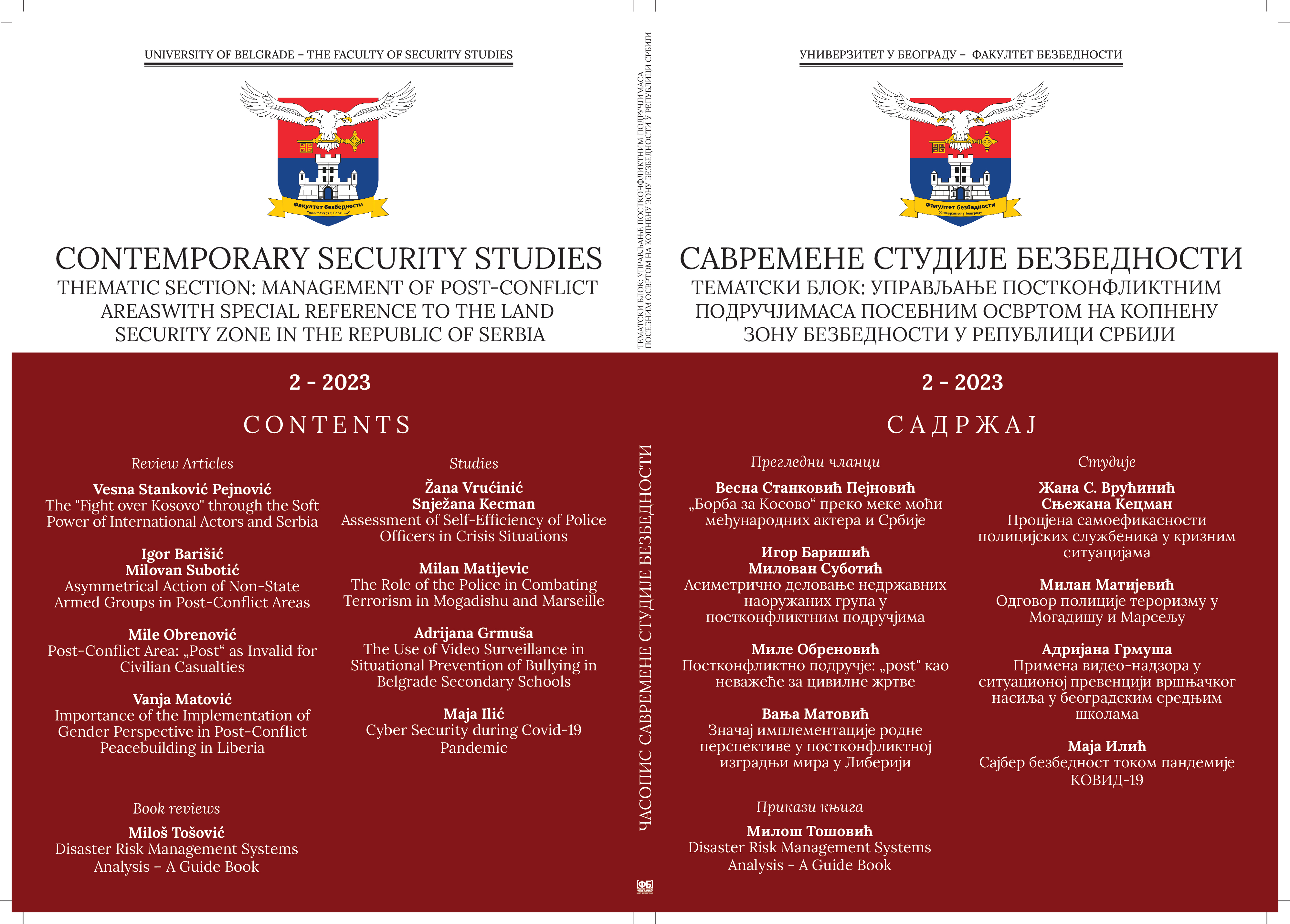ASSESSMENT OF SELF-EFFICIENCY OF POLICE OFFICERS IN CRISIS SITUATIONS
Abstract
Achieving the optimal functioning of police officers in crisis situations, i.e. self-efficacy, among other things, is possible by encouraging internal mechanisms of resistance, which are operationalized in this research through optimism, hope and coping strategies. Given that, the aim of this research was to investigate mutual relationship of the self-efficacy of the police officers in crisis situations and optimism, hope and coping strategies. After that, the contribution of these resilience resources in explaining the criterion variable was investigated, as well as the difference in the level of its expression considering the complexity of the jobs and tasks performed by police officers. The sample was convenient and consisted of 3 sub-samples. The variable self-efficacy in a crisis was measured by the four-factor Crisis Self-Efficacy Scale (C S-E S, Sejin, 2016). The Revised Life Orientation Test (LOT-R, Scheier, Carver, Bridges, 1994) was used to measure the variable optimism. The hope variable was measured by the Adult Hope Scale (AHS, Snyder, et al., 1991), while the Coping Orientation of Problem Experience (COPE, Carver, Scheier, Weintraub, 1989) was used to measure the coping strategies variable. In this research, a statistically significant positive association of problem-oriented coping and emotion-oriented coping was partially confirmed, as well as a partially statistically significant negative association of avoidance coping with the self-efficacy of police officers in crisis situations, while hope and optimism were statistically significantly positively associated with the criterion variable. Optimism, hope and problem-oriented coping proved to be significant predictors of self-efficacy of police officers in crisis situations, while emotion-oriented coping, proved to be a maladaptive predictor. Finally, members of the Special Anti-Terrorist Unit, unlike members of the General police and Police Academy cadets individually, achieve statistically significantly higher results on all subscales of the Self-Efficacy Questionnaire (CSES). Theoretical and practical implications of these findings are discussed.

